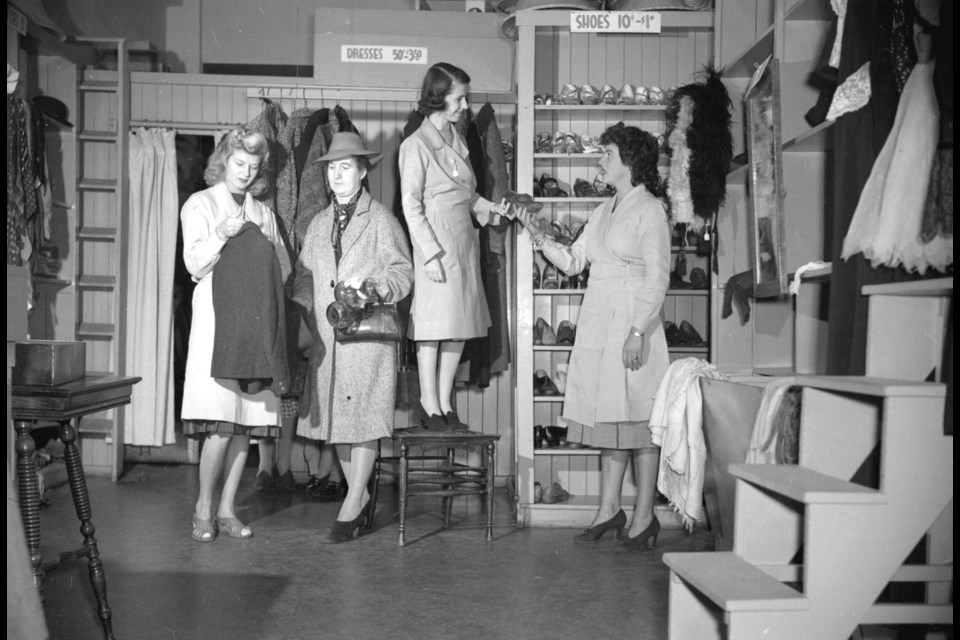After you voted last Saturday, I’m sure you didn’t spend Sunday poring over the election results. Only a nerd would do that.
You probably ran errands, did some shopping, maybe went for drinks with friends. Since you live in Vancouver, statistics say you probably didn’t spend the morning in church.
Yet it was only a few elections ago — on Nov. 20, 1982, to be precise — that Vancouverites voted in favour of Sunday shopping. Until then, you couldn’t get anything more than the bare essentials on what was legally and unironically called “the Lord’s Day.”
The provincial government amended the ban on Sunday shopping in 1980, effectively throwing the matter to local communities to decide. Vancouverites made the decision to allow Sunday openings, but fewer than three in five voters supported the change — 58.2 per cent. It was no landslide.
It’s hard to believe now, but Sunday shopping was a political lightning rod in the 1970s and ’80s, in Vancouver and across Canada. It was a cleavage between liberals and conservatives, though it also made some strange bedfellows. Some union members made common cause with religious conservatives. Assurances were needed that unionized workers who turned down Sunday shifts would not lose seniority as a result.
The controversy around Sunday shopping was part of a larger social conservatism that seems a world away from the Vancouver of 2014. Our approach to alcohol may be the rare remnant of that old moralism. We can’t buy wine at the grocery store, for instance, and only this week the government announced that liquor stores would finally be opening on Sundays, but this is a far cry from the B.C. of old, which had some of North America’s strictest (and most bizarre) liquor laws.
But even Social Credit knew American and overseas visitors would not tolerate that nonsense and so, when we decided to “welcome the world” to Expo 86, the B.C. government permitted a “temporary” reprieve from abstemiousness. Of course, like the temporary income taxes imposed during the First World War, this genie would not return to its bottle. British Columbia hasn’t seen a sober Sunday since.
What we have gained in the convenience of Sundays that are no different from any other day, we have lost in something less measurable. There used to be one day a week when very few people worked. What they did with that day, given the limited options, may or may not have involved religious services or spiritual introspection. But it was unequivocally a time of slowing down. Even TV and radio carried lethargic programming.
Just because we can work, shop, party or play Candy Crush seven days a week doesn’t mean we have to. Taking a respite from the weekly grind is not something that can be legislated, nor should it be. Yet the small number of people who, for religious or other reasons, still make time for disconnecting, for reflection, for sanctifying time, claim it is a rejuvenating and uplifting experience.
In a world where our absence from social media can be instantly noticed and failure to answer a phone or email within minutes can spark alarm, many of us never really “turn off.” But some people do, and not only in the traditional sense of taking a Sabbath break. Some go hiking or sailing or someplace where they are beyond the reach of the incessant pinging.
Yet a “Sabbath” is, in some interpretations, not about going to a place, but about sanctifying the day.
Rabbi Abraham Joshua Heschel (1907-1972), whose slim but powerful treatise The Sabbath is a modern consideration on the importance of a day of reflection, argued that a Sabbath is like a “cathedral in time.” In the Judeo-Christian creation narrative, God made the world and then took a rest. God did not build a sanctuary, Heschel wrote, but rather created one out of time.
“The meaning of the Sabbath is to celebrate time rather than space,” he wrote. “Six days a week we live under the tyranny of things of space; on the Sabbath we try to become attuned to holiness in time. It is a day on which we are called upon to share in what is eternal in time, to turn from the results of creation to the mystery of creation, from the world of creation to the creation of the world.”
In the speeded-up contemporary world, time gets short shrift. We can have all the stuff we want, but if we do not take time to enjoy it, it is worthless. More urgently, despite whatever else we have, when we are out of time, nothing else matters.
What is more valuable than time? And yet how cheaply we often spend it.
[email protected]
twitter.com/Pat604Johnson



